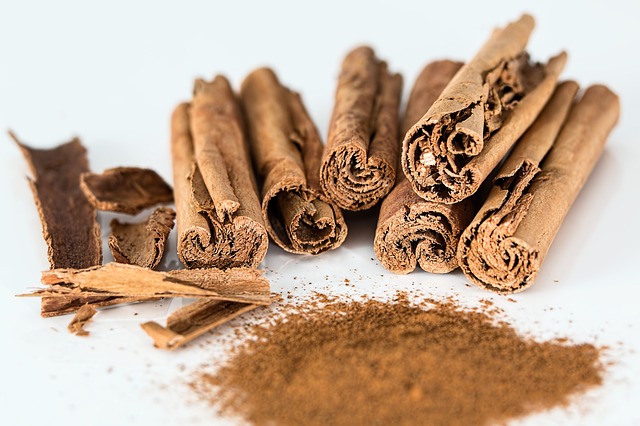 Cinnamon is a fragrant and sweet spice that is available year round and has long been used as both a spice to flavor foods and as a medicine.
Cinnamon is a fragrant and sweet spice that is available year round and has long been used as both a spice to flavor foods and as a medicine.
It is one of the oldest spices known to man and used as far back as ancient Egypt as a beverage flavor, embalming agent and as medicine. Believe it or not, at one time cinnamon was considered so precious that it was valued higher than gold. It is also mentioned in a book on Chinese botanical medicine that dates back to 2,700 B.C.
There are two varieties of cinnamon; Chinese and Ceylon. Both varieties have similar flavor but Ceylon is more refined with a slightly sweeter taste…it is however harder to find in local supermarkets. If you are looking for Ceylon cinnamon you will likely have to shop in ethnic markets or possibly a local spice store.
Created from the inner bark of trees called Cinnamomum, cinnamon is available in tubular form (known as quill or cinnamon sticks) or as ground powder.
With its warm taste it’s the perfect spice to use during cold winter months.
Among a variety of substances in cinnamon, 3 basic components found within the essential oils in the bark of the tree, cinnamaldehyde, cinnamyl acetate and cinnamyl alcohol offer most of cinnamon’s healing benefits.
Well researched and studied for its effects on blood platelets, Cinnamaldehyde helps prevent unwanted clumping of blood platelets. The oil containing high concentrations of cinnamaldehyde are also responsible for the distinct aroma and flavor that cinnamon offers.
The antimicrobial properties of cinnamon so effective that studies have proven (it has been proven to help stop the growth of fungi, bacteria and common yeast Candida) that this warm spice can be easily used as an alternative to traditional preservatives.
When used as a seasoning on high carb foods, cinnamon has proven effective at lessening the impact these foods have on blood sugar levels because it slows the rate at which the stomach empties itself of food which reduces the rise normally experienced in blood sugar after eating.
As a powerful antioxidant, cinnamon beat out some super spices like anise, ginger, nutmeg and licorice in its ability to prevent oxidation.
Along with all those powerful essential oils that cinnamon offers, it also provides our bodies with fiber and manganese and it is a health source of calcium.
Cinnamon can also help with weight loss in a few different ways.
The consumption of cinnamon is said to impact abdominal fat more so than fat found in other parts of your body. In other words, it works to decrease belly fat.
When you eat hot peppers, your metabolism speed up because it takes more energy to metabolize these foods. This boost in metabolism burns more calories and helps with weight loss. Cinnamon is known to do the same thing. When there is cinnamon in your body your metabolism speeds up to provide that extra energy to metabolize it.
And, if the health benefits are not enough to get you using cinnamon, then surely the wonderful, warm, sweet odor will.
Like other dried spices, its best to purchase organic cinnamon. This way you are assured that this tasty spice has not been irradiated.
Once you get your cinnamon home from the market it’s important that it is stored in a tightly sealed glass container located in a cool, dry, dark place.
Ground cinnamon will keep its potency about six months while “quill” or cinnamon sticks retain their freshness for about a year if stored properly.
Some people choose to store their cinnamon in the refrigerator to extend their shelf life. When your cinnamon no longer smells sweet then it is no longer fresh and needs to be discarded.
Cinnamon Raisin Bars
¾ cup dates
¼ cup raisins
½ cup almonds
½ cup cashews
½ teaspoon ground cinnamon
Soak dates and raisins for at least 30 minutes then drain. Blend all ingredients in food processor until well blended. Shaped into bars and refrigerate.
Speak Your Mind